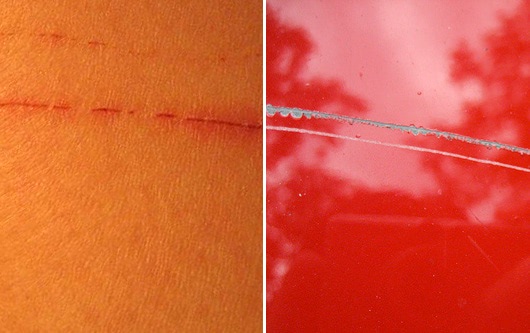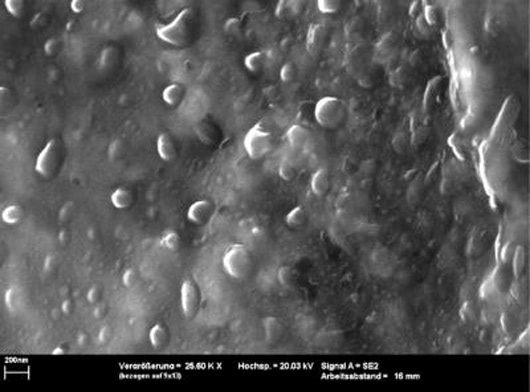
What if a scratch on your car door could heal itself, just like the human skin does?
Engineers are working on a way to transfer the self-healing ability of the skin to surfaces and materials. The idea behind this, is to evenly distribute fluid-filled capsules into an electroplated layer on top of the material that could be subject to corrosion and rust. If the surface is damaged, the pellets burst and a coating fluid runs out to 'repair' the scratch.
Until now, these plans have failed due to the size of the capsules – at 10 to 15 micrometers they were too large for the electroplated layer, which is around 20 micrometers thick. The capsules altered the mechanical properties of the layer.
Researchers, financed by Volkswagen, have developed a process for producing electroplated layers with nano-capsules.

At only a few hundred nanometers in diameter, the capsules are measured on another scale entirely, compared with previous results. "The challenge lies in not damaging the capsules when producing the electroplated layer", says Dr. Martin Metzner, Head of Department at IPA. "The smaller the capsules, the thinner and more sensitive their casing. The electrolytes used for these electroplated-technical processes are extremely aggressive chemically and can easily destroy the capsules". Another compatible material for the capsule casing had to be found, depending on the electrolytes used.
The researchers have produced the first copper, nickel and zinc coatings with the new capsules, although surface coverage does not extend beyond the centimeter scale. Experts estimate that it will be another one and a half to two years before whole components can be coated. In a further step the team worked on more complex systems – involving differently filled capsules, for example, whose fluids react with one another like a two component adhesive.
via: eurekalert.org | Related: Nanocars | Crashcourse Nanotechnology | Attack of the Metal Eating Plants
Share your thoughts and join the technology debate!
Be the first to comment